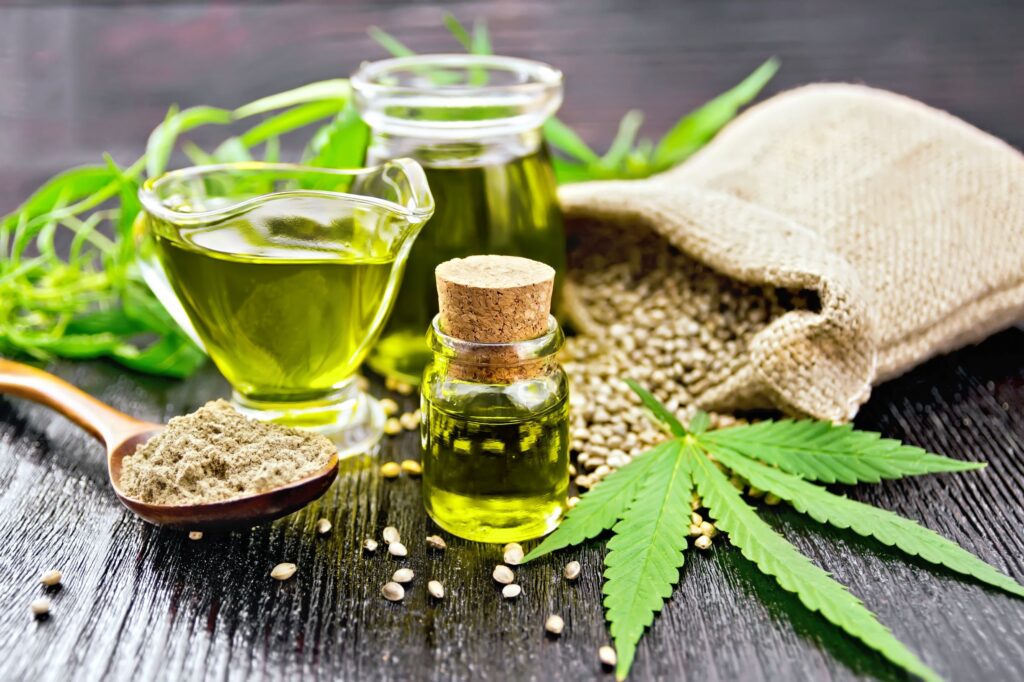
If you’ve ever stood in the skincare aisle wondering whether hemp seed oil is worth the hype, you are not alone. Hemp seed oil has gained popularity over the past few years, and for good reason. As a cosmetic chemist, I’ve worked with this remarkable oil in formulations and can confidently say it is one of the most versatile and skin-loving plant oils available.
So, what makes hemp seed oil so special?
Let’s start with what it does. Hemp seed oil is incredibly nourishing for skin that feels dry, sensitive, or out of balance. It has a unique ability to moisturise deeply without clogging pores—something that’s especially important if your skin is prone to breakouts. I have often recommended it to people struggling with oily or congested skin, where heavy creams and oils can easily make things worse. Hemp seed oil manages to hydrate, calm visible redness, and support the skin’s natural barrier function all at once.
The real magic lies in its nutrient profile. Hemp seed oil is rich in essential fatty acids, especially omega-3 and omega-6, that help maintain the skin’s moisture balance and reduce trans-epidermal water loss (that’s a fancy way of saying it stops your skin from drying out). It also contains a lesser-known but powerful fatty acid called gamma-linolenic acid, or GLA. GLA is known for its calming, anti-inflammatory properties, which make hemp seed oil particularly helpful for reactive or stressed-out skin.
On top of that, it delivers antioxidants and vitamin E; both of which support skin repair and resilience.
Every oil has its own personality. Jojoba oil mimics the skin’s natural sebum, which makes it ideal for balancing oily or combination skin types. Rosehip oil is what we call a “dry oil”; it sinks in quickly and is known for its role in helping to minimise the appearance of scars and uneven skin tone. Hemp seed oil, by comparison, is lightweight and non-greasy. It strikes that rare balance between moisturising and calming without overwhelming the skin. It’s also suitable for skin that is both dry and breakout-prone; a tricky combination.
When I’ve worked with hemp seed oil in the lab – formulating the Organic Healing Facial Oil for the Megan Potter brand I co-owned – I always used the refined version. It has a lovely golden hue, no strong aroma, and blends beautifully into a formula. Unrefined versions, while often marketed as more “natural,” tend to be dark greenish-yellow and have a grassy smell that not everyone enjoys. For facial skincare, refined is usually the better choice.
Yes, it is. Hemp seed oil has a comedogenic rating of zero, which means it is very unlikely to clog pores. Of course, everyone’s skin is unique, and nothing is truly one-size-fits-all. But in my experience, hemp seed oil is one of the safest and most effective oils for moisturising without heaviness—making it ideal for skin that leans toward congestion or acne.
This is a common point of confusion, so let’s clear it up. Hemp seed oil is extracted from the seeds of the hemp plant, whereas CBD (short for cannabidiol) comes from the flowers and leaves. They are both derived from the same plant family, but they serve completely different functions in skincare. Hemp seed oil contains no CBD and is valued for its moisturising and barrier-supporting properties, not its cannabinoid content.

Five simple truths about what you need and perhaps what you don’t when it comes to skincare for women in mid-life
Finally a sustainable facial system that harmonises certified organic ingredients, clinically proven bio-active marine, and sustainable packaging and ingredients.